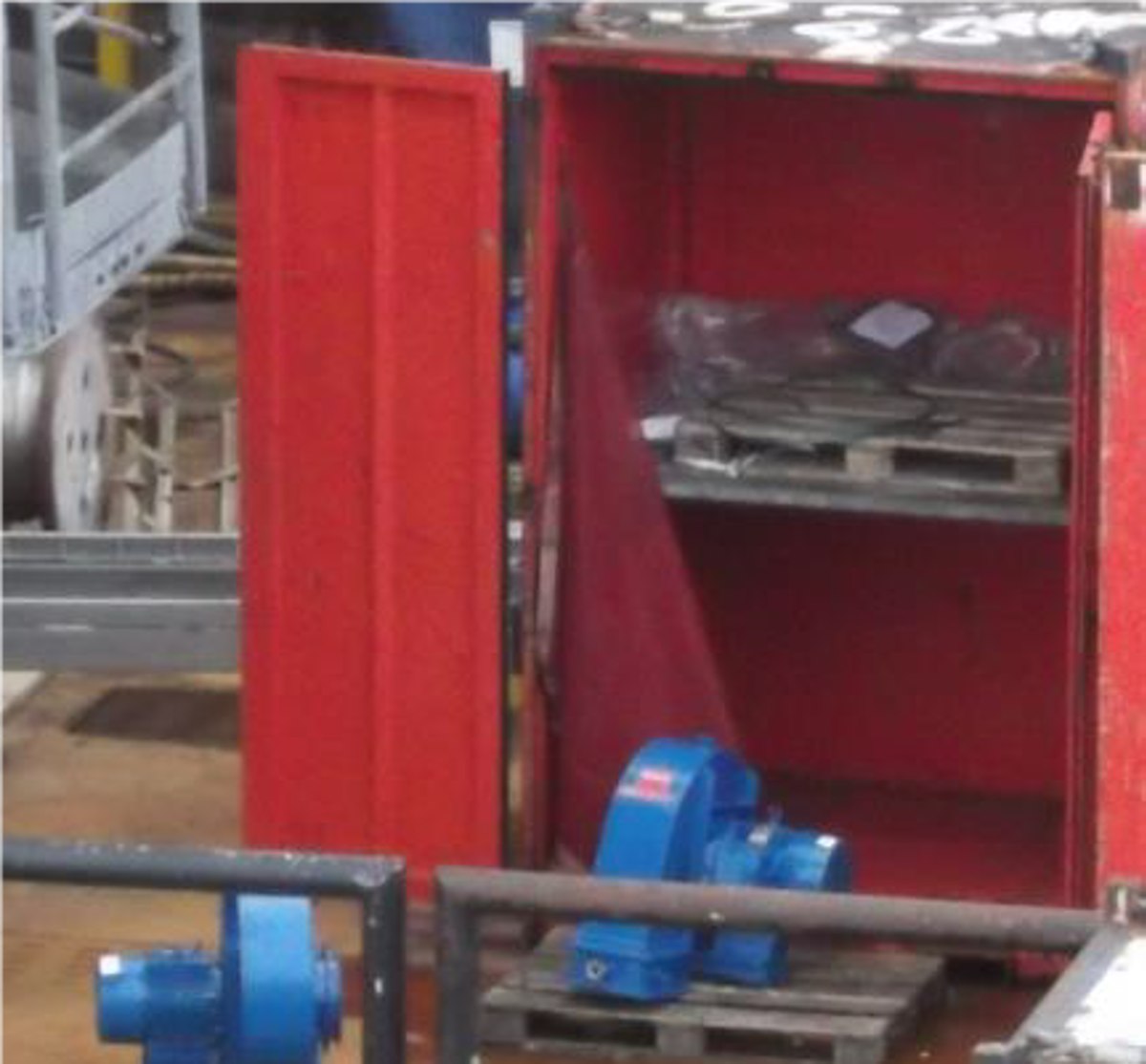Unsecured cargo inside containers
- Safety Flash
- Published on 12 May 2017
- Generated on 21 February 2026
- IMCA SF 10/17
- 2 minute read
Jump to:
Two incidents are highlighted here in which cargo was damaged because it was not properly secured.
Incident 1
A member has reported an incident in which cargo weighing 1.5 tonnes was damaged during transportation when it was returned to the supplier by road. The cargo was placed unsecured within a half-height container and was allowed to move freely. Whilst the damage was minor, the incident highlighted several very serious issues that posed a risk to the truck driver, the truck, as well as other road vehicles and pedestrians.
- The truck could have become unstable due to the shifting load affecting handling and braking.
- This situation could have caused damage to the strops used to secure the half height container to the truck leading to a lost load.
A finding in this case was that there had been a breakdown in communication between the lifting crew, a third-party technician and the truck driver, which led to a failure to secure the load within the container.
Action
- Ensure that any cargo or equipment is confirmed to be adequately secured for transfer before it is lifted.
- Ensure good communication between those responsible for the cargo, lifting teams, and transportation teams ashore.
- Ensure that it is clearly understood who has responsibility for confirming the security of equipment when it is lifted in containers.
Incident 2
Step Change UK reports an incident in which an unsecured motor in a cargo carrying unit (CCU) fell to deck as it was being secured. No-one was harmed but the motor, which weighed 95 kg, was extensively damaged.
When opened, a CCU was found to be a shelved unit containing two palletised blower motors each weighing 95 kg – one on the lower level and the other on the shelf. It was intended to remove only the lower motor and send the second (upper) motor back onshore for reloading. The upper motor was not secure and moves were made to secure it before back loading. As crew climbed onto the shelf in attempts to secure the motor, its pallet shifted and tipped forward. The motor fell from height onto the deck, causing extensive damage to the motor. No one was injured during the incident, but had there been crew in the way, this could have resulted in serious personal injury.

Related safety flashes
-
IMCA SF 17/09
1 December 2009
-
IMCA SF 10/13
25 June 2013
IMCA Safety Flashes summarise key safety matters and incidents, allowing lessons to be more easily learnt for the benefit of the entire offshore industry.
The effectiveness of the IMCA Safety Flash system depends on the industry sharing information and so avoiding repeat incidents. Incidents are classified according to IOGP's Life Saving Rules.
All information is anonymised or sanitised, as appropriate, and warnings for graphic content included where possible.
IMCA makes every effort to ensure both the accuracy and reliability of the information shared, but is not be liable for any guidance and/or recommendation and/or statement herein contained.
The information contained in this document does not fulfil or replace any individual's or Member's legal, regulatory or other duties or obligations in respect of their operations. Individuals and Members remain solely responsible for the safe, lawful and proper conduct of their operations.
Share your safety incidents with IMCA online. Sign-up to receive Safety Flashes straight to your email.